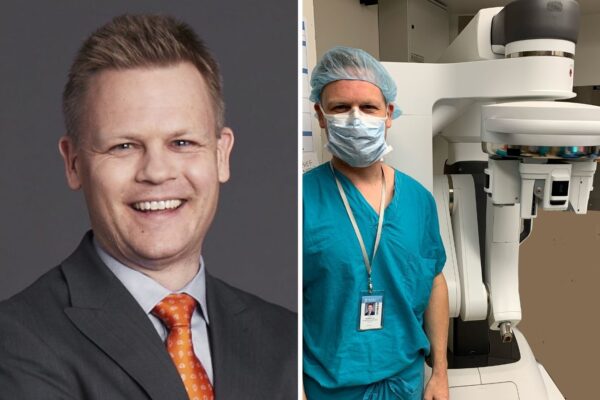DO, MSc, FACOS
Associate Professor, Urology
UNC-Chapel Hill
Urologic Oncology
Clinical Research
Meet Marc Bjurlin
Area of Interest
My cancer related research concentrates on the clinical outcomes and techniques of genitourinary cancer treatment, with an emphasis on risk stratification. One of my interests is the use of minimally invasive techniques in cancer surgery, coupled with innovative technologies such as fluorescence imaging, augmented and virtual reality, and 3D printed models. These technologies have the potential to enhance surgical planning and therapeutic interventions. I have been actively involved in the evaluation of the use of robotic surgery in the management of genitourinary cancers. This includes clinical outcomes, with particular attention to complications, oncologic outcomes, and risk stratifying patients to allow for surgical optimization.
Additionally, another area of my academic research focuses on image guided risk stratification and disease localization for men who are at risk for prostate cancer. Specifically, I have studied the performance characteristics of multi-parametric magnetic resonance imaging (MRI) of the prostate as a non-invasive risk assessment tool to predict tumor aggressiveness, outcomes after treatment, and guide prostate biopsies by a MRI-ultrasound fusion technique. This imaging modality and biopsy technique has allowed for increased detection of clinically actionable disease, while limiting the over detection of indolent cancer, requiring fewer biopsy cores, and ultimately improving cancer risk stratification that drives appropriate management decision making.
News and Stories

Urologic oncologist makes his mark through robotic surgery program
Marc Bjurlin, DO, MSc, FACOS, specializes in minimally invasive techniques in cancer surgery and brings his expertise to the single port robotic surgery program.

Chemotherapy plus immunotherapy before surgery is beneficial for invasive bladder cancer outcomes
Tracy Rose, MD, MPH, Matthew Milowsky, MD, and colleagues report that the regimen reduced the invasiveness of the cancer in 56% of patients in a phase II clinical trial.

